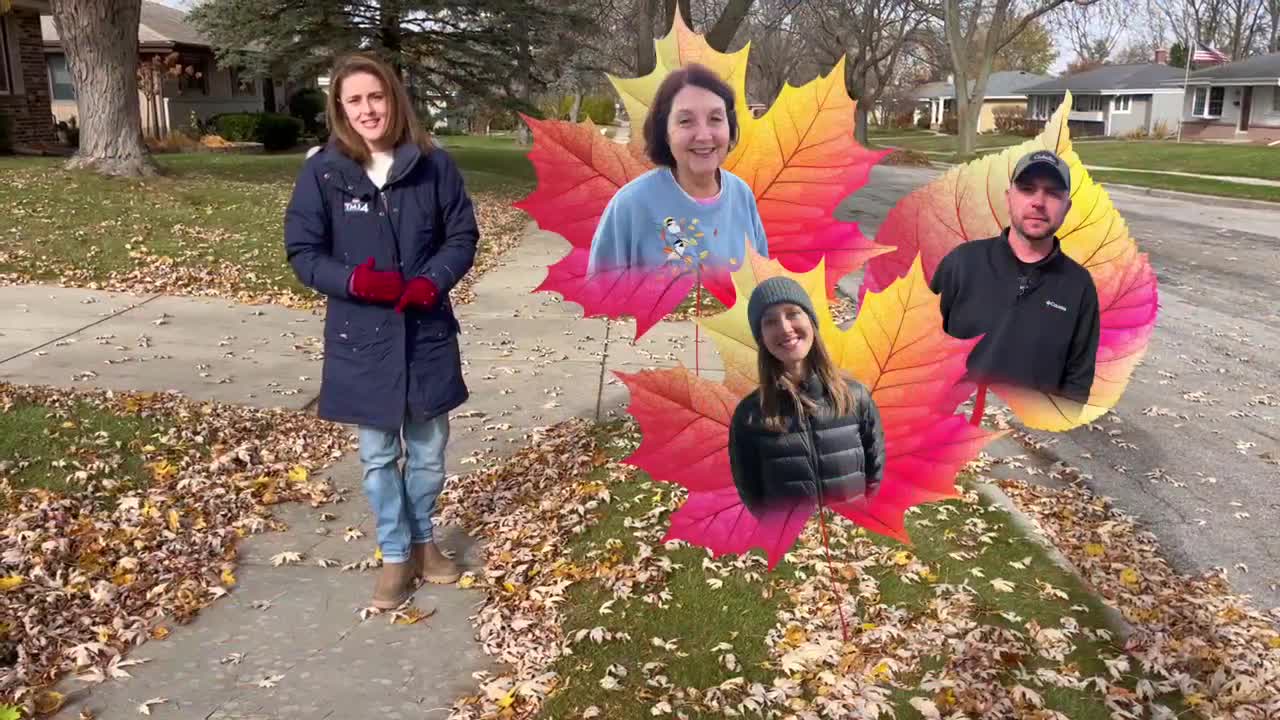MENOMONEE FALLS, Wis. — Menomonee Falls is in the middle of a two-year study that could change how people throughout the area take care of their lawns, even if they don’t live in the village. Menomonee Falls is studying a neighborhood to see how people deal with their leaves.
"I just mulch them up and leave them," said Lynda Ferguson, who lives in the neighborhood that is in the study.

Mulching leaves is what the Menomonee Falls Department of Public Works, the US Geological Survey, and the nonprofit Sweet Water are examining. Sweet Water works with water sheds and storm water management for more than 30 municipalities in southeast Wisconsin.

The reason leaf management is being studied is because they naturally contain phosphorus and other nutrients, which are great for growing plants and your lawn, but bad for rivers, streams, and Lake Michigan.
Watch: A leaf experiment is underway in Menomonee Falls:
"When it rains and those leaf piles are in the street, nutrients are leeched from the leaves, and those nutrients are harmful to aquatic life. It disrupts the aquatic ecosystem, it creates algae blooms, which then affects our recreation," said Claire Kaleta, project manager at Sweet Water.

The issue for Menomonee Fallsm- it has trees and leaves that end up near their storm drains. So the village spends a lot of time street sweeping them and collecting them, especially after homeowners rake them.

"Leaves and flooding certainly go hand and hand. When leaves cover up the storm drains, localized flooding can happen," Kaleta said.
DPW says it spends about $330,000 a year picking up and composting leaves. The study is looking to see how homeowners do at mulching leaves and how a change could help the environment.

"It is an experiment to see if mulching in place can gain some steam and reduce some costs on the village's end, and make our waterways a little cleaner," said Paul Fitzgerald, deputy director of Menomonee Falls Public Works.
"It isn't any different than mowing your lawn. If you mow your lawn, you know how much time it takes, and it is good for the soil, good for the grass," Ferguson said.
The study wraps up at the end of the year. The U.S. Geological Survey will use the phosphorus data collected as part of a larger study.
This story was reported on-air by a journalist and has been converted to this platform with the assistance of AI. Our editorial team verifies all reporting on all platforms for fairness and accuracy.
It’s about time to watch on your time. Stream local news and weather 24/7 by searching for “TMJ4” on your device.
Available for download on Roku, Apple TV, Amazon Fire TV, and more.






